Magic brews: a guide to Melbourne’s ever-changing coffee scene
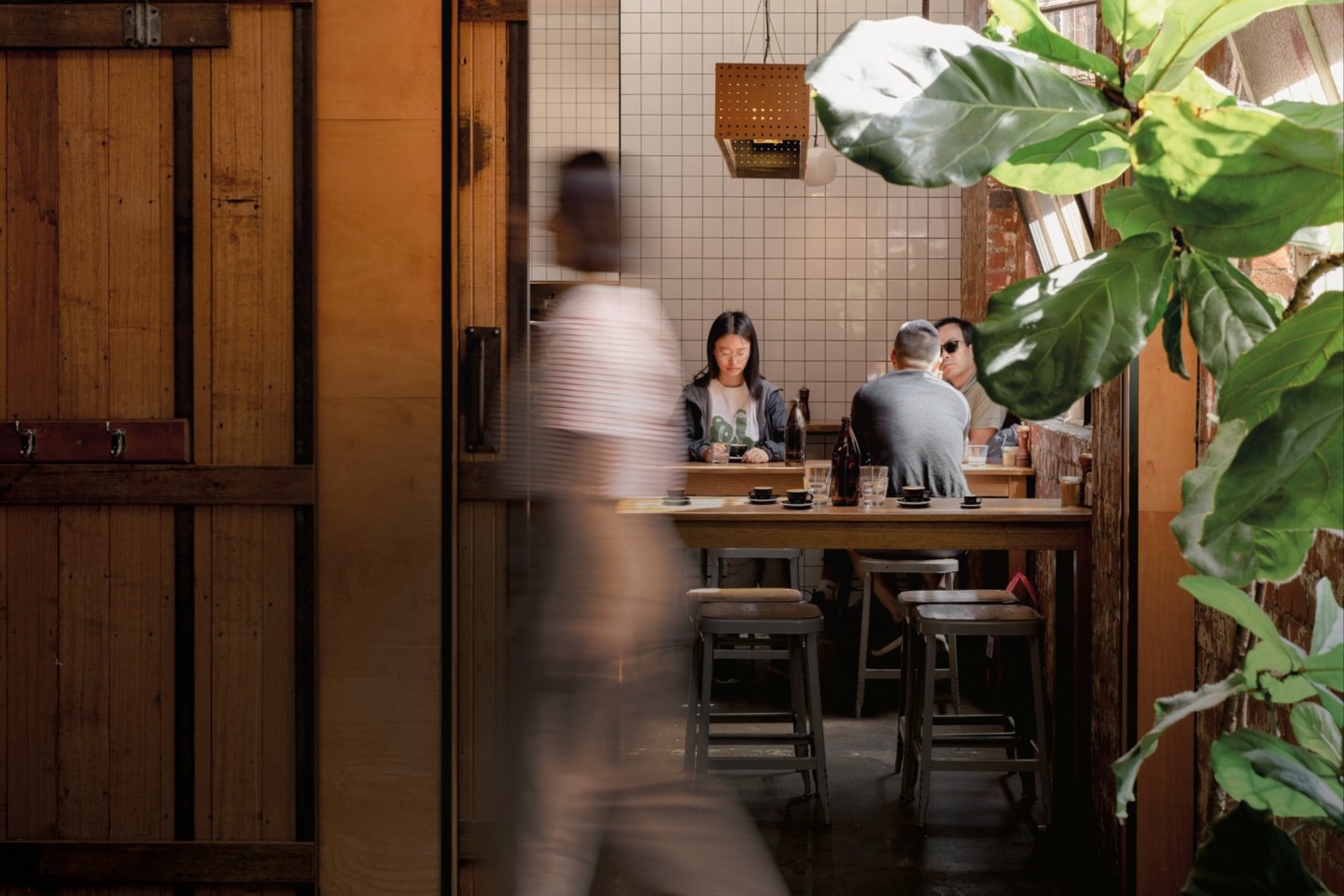
Roula Khalaf, Editor of the FT, selects her favourite stories in this weekly newsletter.
This article is part of a new guide to Melbourne from FT Globetrotter
It is easy to think that Australia’s obsession with excellent coffee — what the Parisians call “la tendance Australienne” — may be verging on the ridiculous. You will struggle to find a purveyor of caffeine prepared to offer a basic brew in Melbourne, a city that prides itself as the mecca (or mocha) of artisanal coffee.
Even bad coffees aim high. McDonald’s markets its coffee in the UK as diametrically opposite to “hipster” brews. Yet in Australia it has offered an ungodly concoction infused with wattleseed and chai under the brand “Australiano” to compete for palate space.
Meanwhile, the convenience chain 7-Eleven — which pumps out 80mn cups of cut-price coffee every year to hungover “tradies”, those on a budget and petrol buyers — boasts how its beans are Fairtrade.
In Melbourne — a city that has more than 2,000 cafés — coffee is a serious business compared to other Australian cities and most anywhere else in the world.
Australia’s history with coffee beans can be traced to the white settlement of the country when it was primed as a potential cash crop for the nation. Although a small industry remains, it was immigrants from Italy, Greece and Malta who arrived in the postwar immigration boom who introduced the tea-drinking former British colony to the joys of strong, richly flavoured espresso, when steam machines were imported to serve those communities in the 1950s. That laid the foundation for the barista revolution that took place as coffee culture firmly took hold in Melbourne.
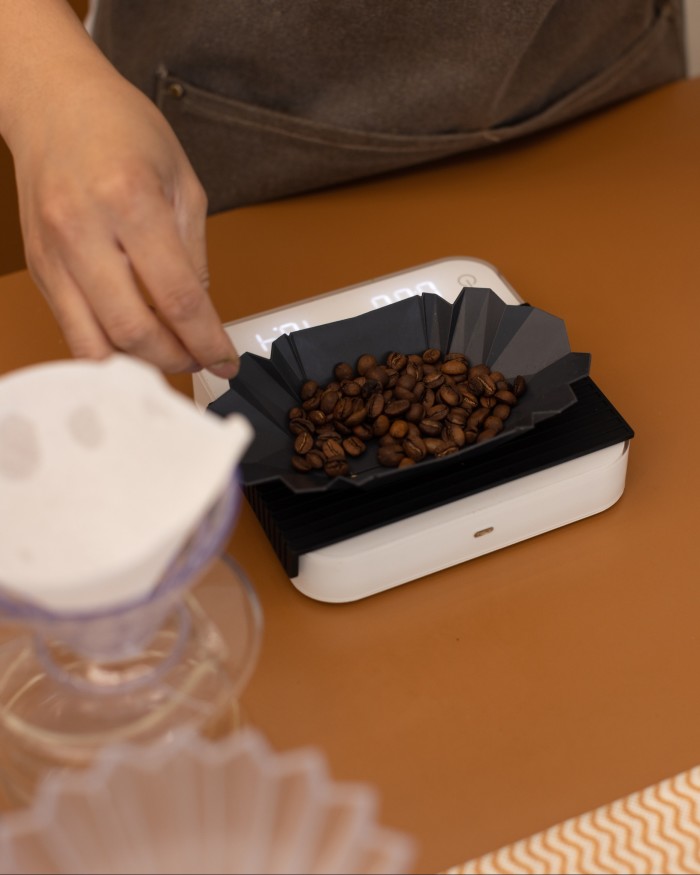
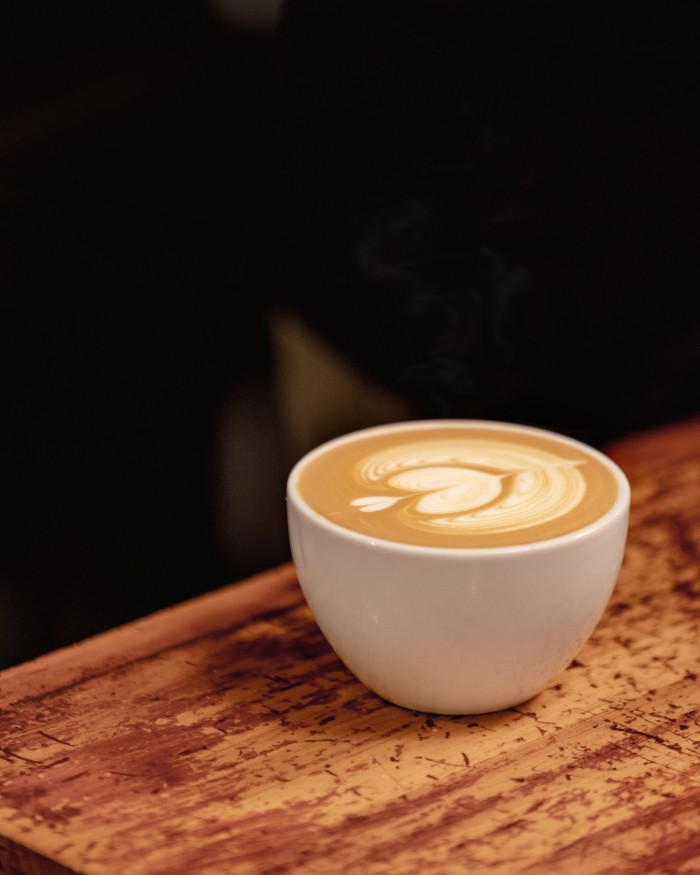
Long blacks and flat whites are now giving way to “magics” (a Melbourne-born aficionado coffee that acts as a stronger cousin to the flat white) and “piccolos” (a slightly milkier version of the cortado), while pour-over and cold-drip styles have become de rigueur for connoisseurs.
The dividing line between coffee hipsterism and coffee snobbery came to light in 2016 when a frustrated punter complained on Facebook that she had wanted “a coffee, not a science experiment” after being served a “deconstructed macchiato” in the form of three beakers — one containing milk, one a shot of coffee and one with hot water. Her post, predictably, went viral and threw Melbourne’s coffee culture into the global spotlight.
The manager of the café responded that it wasn’t a case of extreme hipsterism but a practical response to demanding customers, who always wanted the drink with the elements in slightly different measures.
I didn’t realise how much coffee snobbery is instilled into native Melburnians until I moved to Europe at the turn of the century and was shocked by the abominations that the big coffee chains — who at the time were flooding cities such as London — were pumping out by the gallon.
The artisan coffee experience is one Australia’s quiet exports. But while other parts of the world have adopted the flat white along with the hipster barista, Melbourne remains at the percolated edge of coffee trends. It has also become something of a tourist magnet, with three different walking tours of the city now devoted to coffee shops.
Here’s some of the best places that I head to when I’m back in my home town and in snob mode. One tip is to ask for the coffee extra-hot – Melbourne cafés often veer on the safe side when it comes to temperature.
1. Captains of Industry
level 1, 2 Somerset Place, Melbourne, VIC 3000
Good for: Velvety flat whites, “Magic” mushrooms, leather goods
Not good for: People put off by someone cutting hair where they eat
Opening hours: 9am-3pm Tuesday-Saturday
Price of a flat white: A$4.50
The magnificently named Captains of Industry hides in plain sight just off Elizabeth Street, one of Melbourne’s main thoroughfares. Visitors enter via a narrow staircase underneath a large blue neon sign, indicating the tattoo shop on the top floor. A wood-encased poster advertising “Coffee/Whiskey/Hair/Shoes” at the top of the stairs signals that this is no ordinary place.
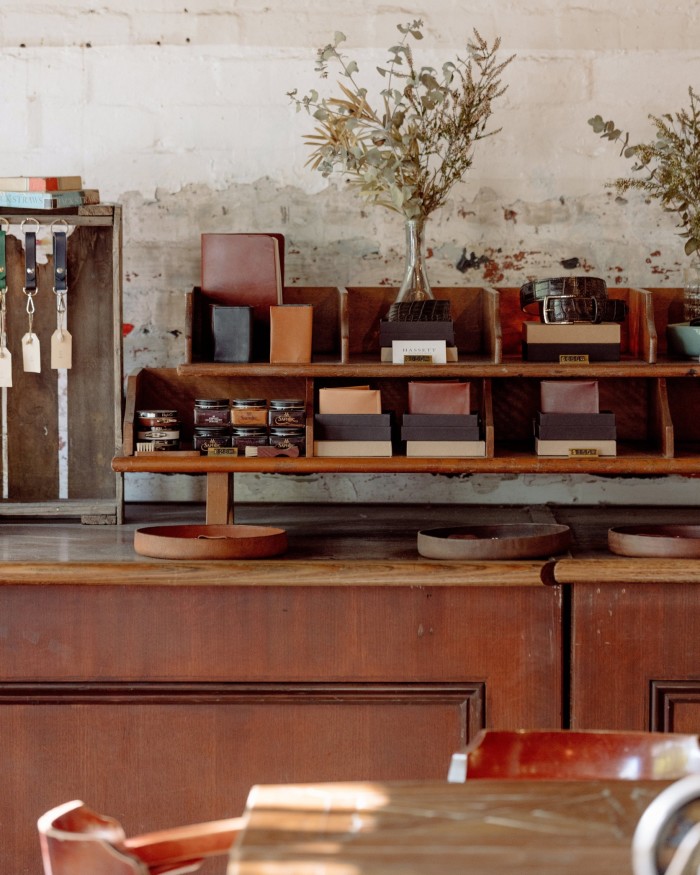
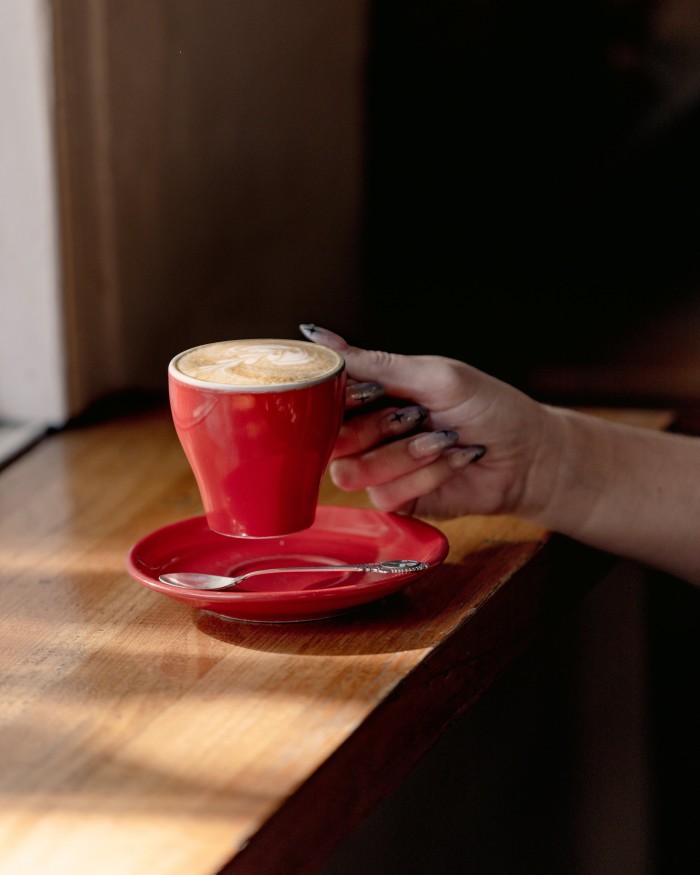
The café is multipurpose, with an expensive leather goods and shoemaker on site and a hairdresser also operating out of one of the annexes opposite the bar. The coffee/coiffure axis may be a step too far for some but the model works at Captains of Industry, which has become a landmark in the trendy coffee triangle adjacent to Melbourne’s retail district.
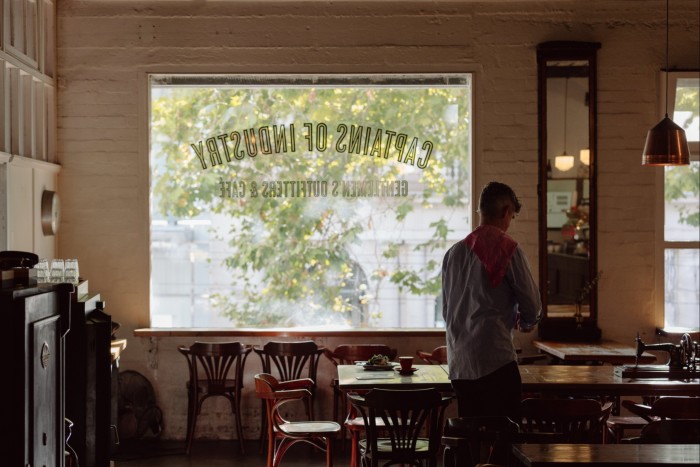
It opened 12 years ago on the site of the famed but now-defunct Melbourne music label and shop Au Go Go and has become a haven for coffee lovers ever since. It offers views over a rival coffee shop located in the historic General Post Office over the road without the hubbub of passing trams and shoppers at street level. It serves beans toasted by Joshua Bailey Coffee, whose reputation for full-flavoured beans has grown in recent years.
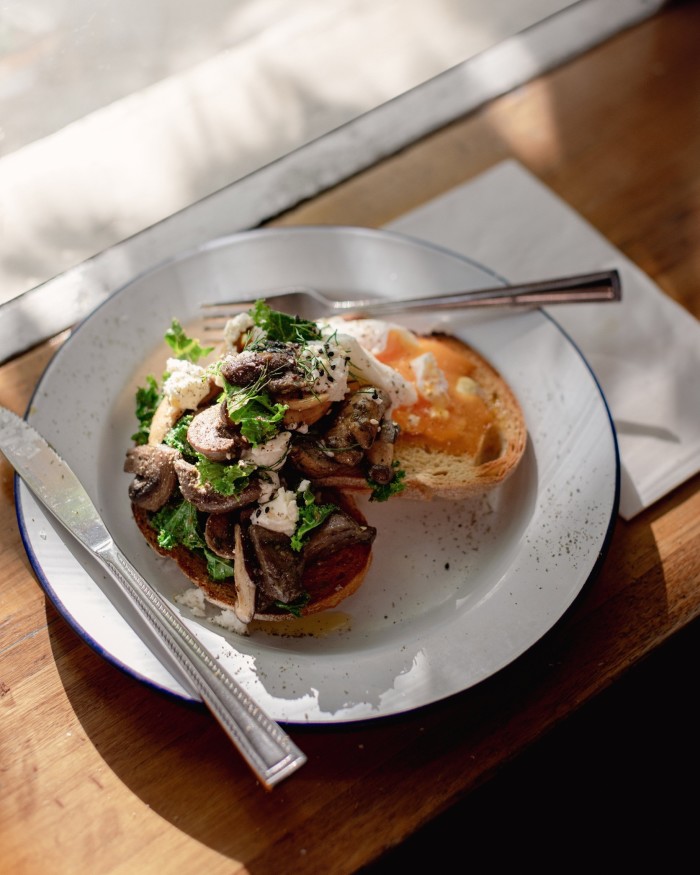
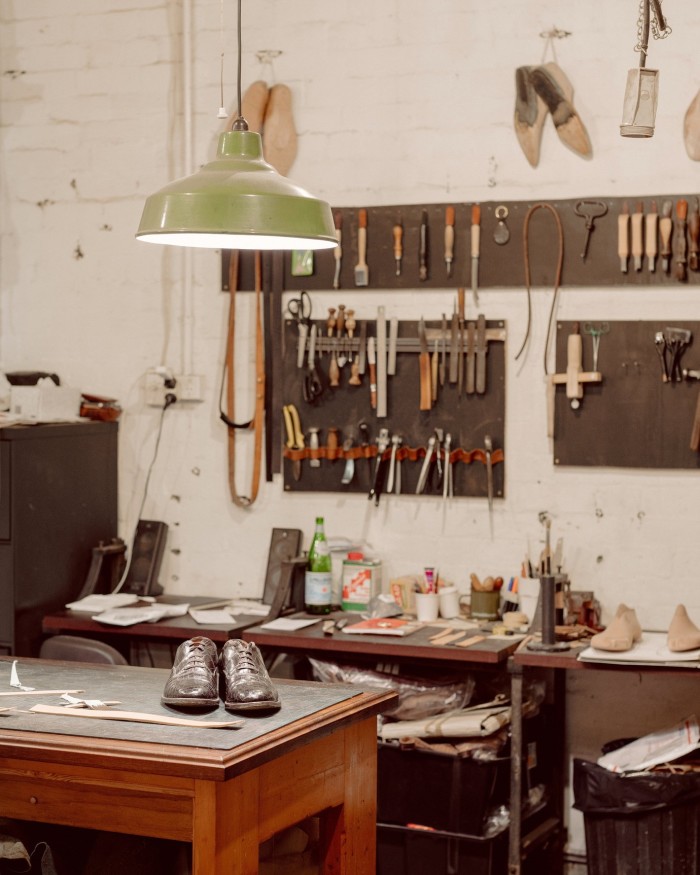
Captains of Industry may evoke images of sleek corporate corridors and copies of the FT in the foyer. Yet, based on the laid-back atmosphere, the name appears to be ironic. Heavy wooden furniture and old-fashioned safes and sewing machines clash with kitsch displays of old comics. The vibe may be hipster but the clientele ranges from professionals and the well-heeled (appropriate, given the resident shoemaker) before the dandies descend as coffee gives way to cocktails. The baristas are friendly and happy to chat if things are quiet.
The menu looks standard at first glance but is more interesting than expected. The smashed avocado contains dill and pomegranate while the “magic” mushrooms on toast are imbued with kale, locally sourced goat’s cheese and miso. All very Melbourne.
2. Manchester Press
8 Rankins Lane, Melbourne, VIC 3000
Good for: Deep coffee flavours, bagels, location
Not good for: Tranquility, comfort. Groups of students playing Scrabble rub shoulders with packs of coffee snobs and young families. The floor space is crowded
Opening hours: 8am-3.30pm daily
Price of a flat white: A$4.90
A display board by the counter of Manchester Press presents itself in the form of cryptic crossword clues rather than a menu. “Espresso White Aspen Raspberry Candy”, it teases, before continuing with “Freeze Distilled Finca Deborah Milky”. The uninitiated may wonder what on earth “anaerobic natural (when beans have been starved of oxygen through the fermentation process) pour-over” means.
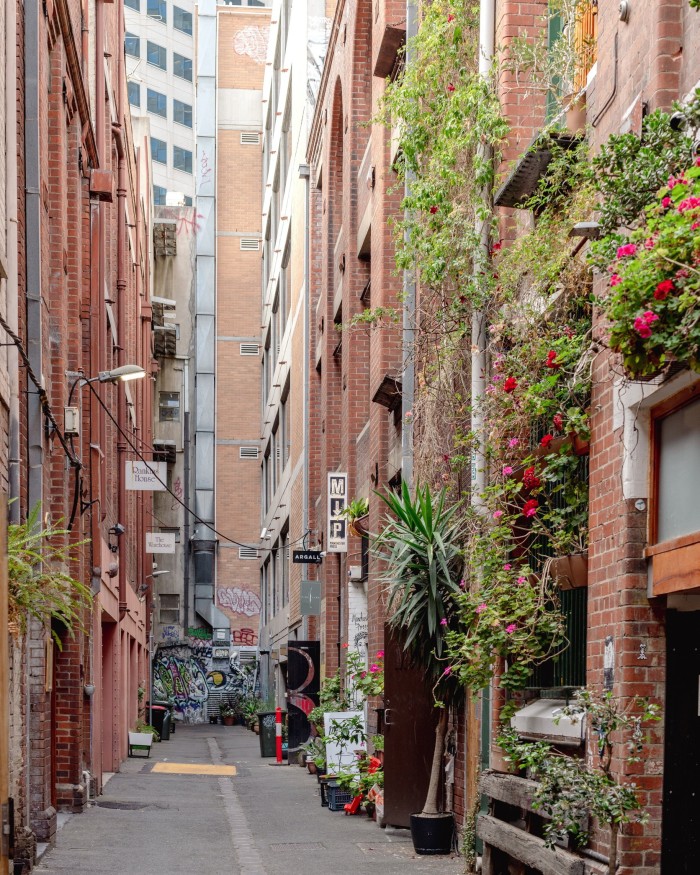
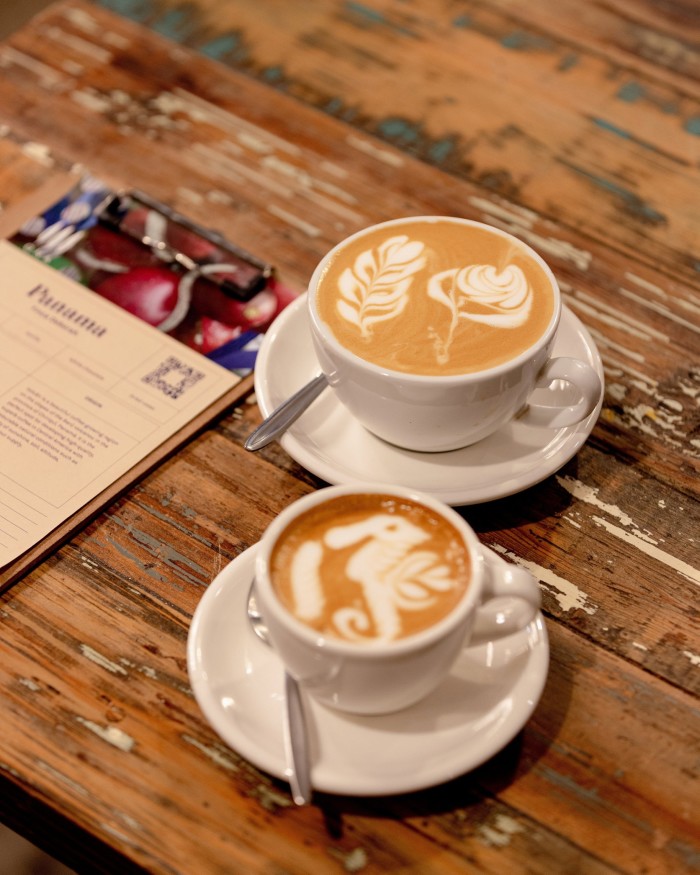
Located at the end of a blocked-off lane, the coffee shop is almost made to be stumbled upon. It is a favourite with locals and rarely quiet, offering both speciality beans and a house blend — using beans from Australia’s Ona roastery — that is one of the best standards in the city. A double espresso is properly viscous, and the deep flavour will sit on the tongue for a long spell.
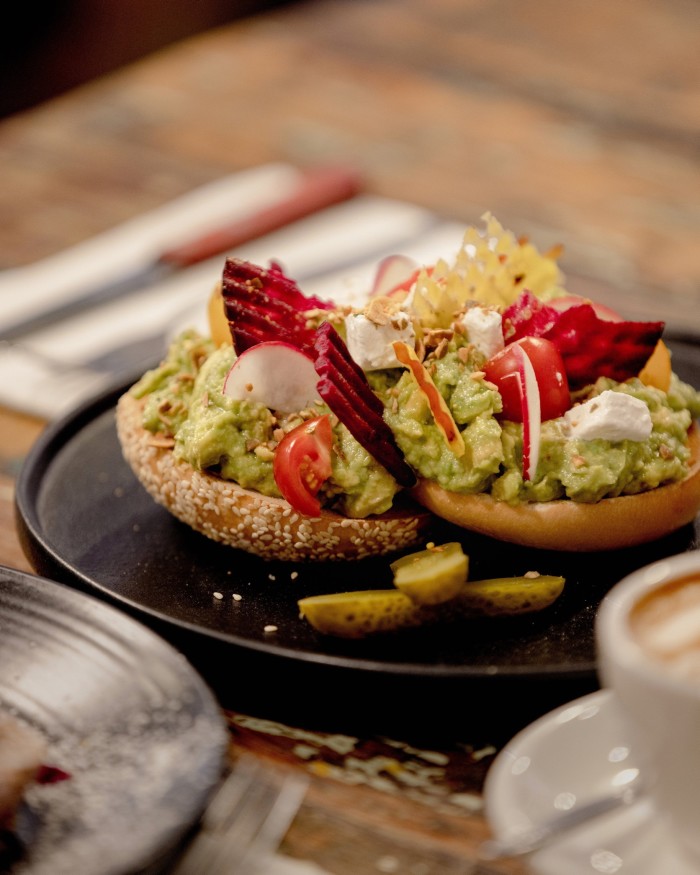
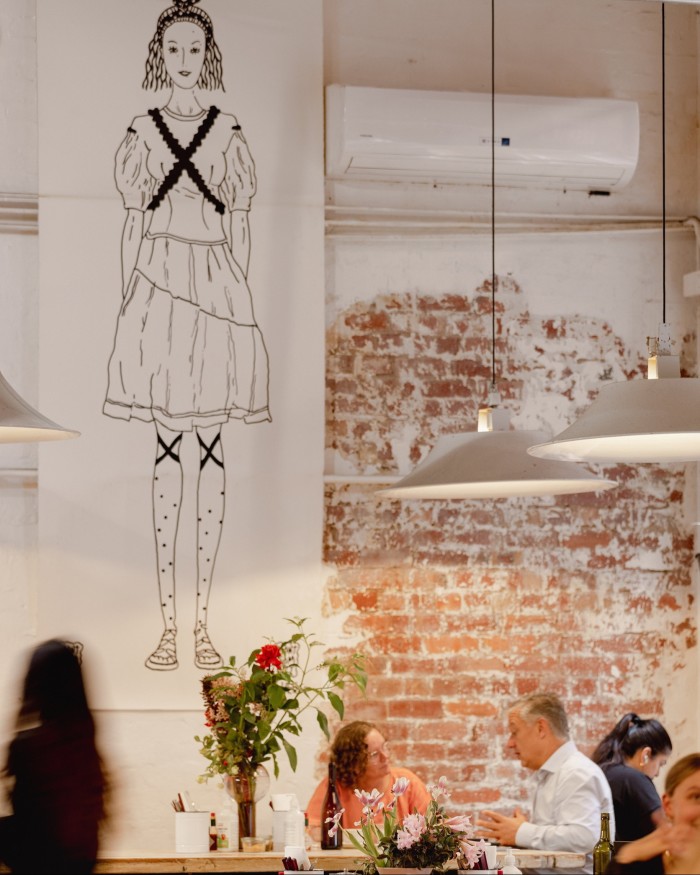
Manchester Press offers next-level hipsterdom from the now-standard warehouse look that has spread across the world. The space used to house a printing press — hence the name — and retains a shabby industrial edge. Pot plants brighten up heavy-set tables where customers perch with coffee and bagels. The 10-foot-tall cartoons of trendy people on the walls and low-hanging lights that wouldn’t look out of place in an operating theatre give the place a unique feel.
This is a good place to test the limits of your coffee snobbery. The Finca Deborah Milky, which captures the flavour of beans grown on the side of the Baru volcano in the Panamanian province of Chiriquí by freeze-distilling them, costs A$20 and is served with a pamphlet to tell you that you should be tasting hints of vanilla, white chocolate and dried violet in the expensive brew. It almost feels like a wine tasting. The flavours are indeed exquisite, rising in strength as you get further down the cup, but it is a rare treat at that price.
3. University Café
257 Lygon Street, Carlton, Melbourne, VIC 3053
Good for: Traditional simple coffee, pasta, outdoor dining
Not good for: Hipsters
Opening hours: Noon-11pm Tuesday to Saturday; noon-10pm Sunday
Price of a flat white: A$4.50
University Café is an institution. In the early 1950s, it was one of the first cafés in Australia to own a lever-pulled espresso machine and quickly became a magnet for the swelling Italian population that had arrived in the country after the second world war looking for work. Located in the heart of Lygon Street, once a hotbed of the criminal underworld, the café retains its original charm thanks to remaining in the same family for three generations after its original owners sold up in the 1970s.
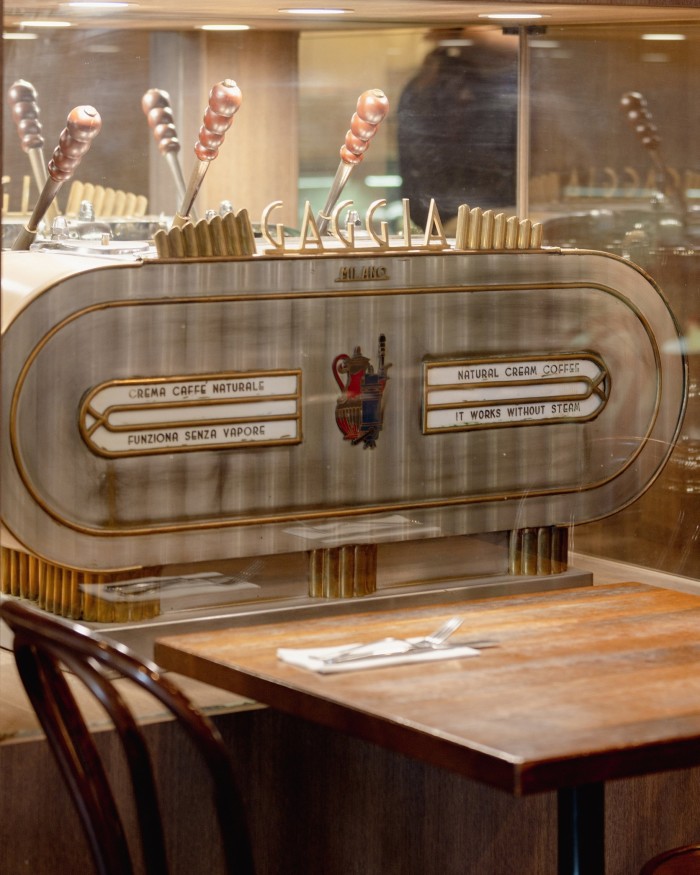
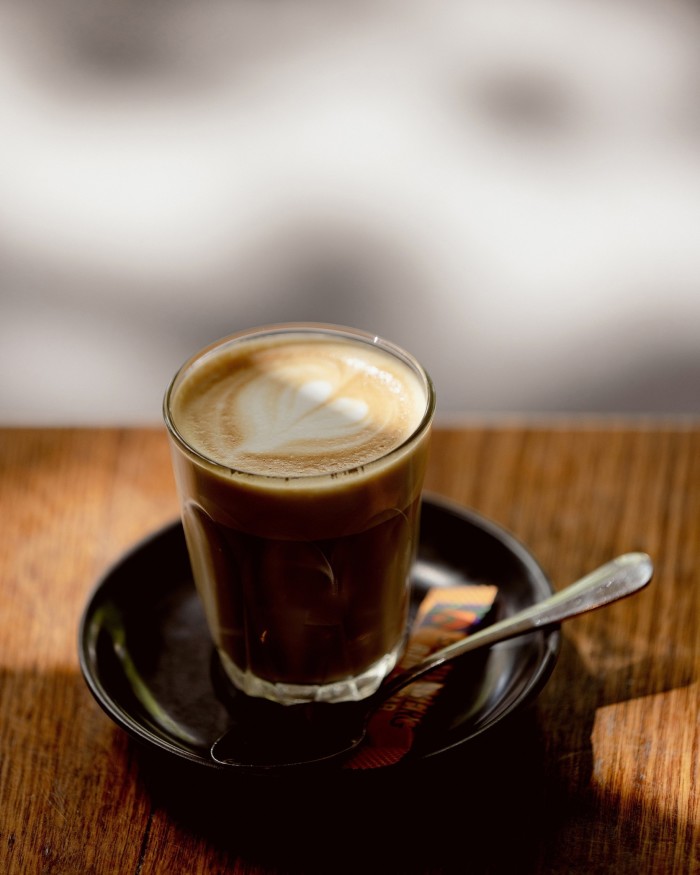
Along with other Italian restaurant mainstays on Lygon Street such as Tiamo and Papa Gino’s, University Café has helped the inner suburb of Carlton, located to the north of Melbourne’s centre, retain its historic status as the go-to place for homemade Italian cuisine and vibrant outdoor dining. Photos of disgraced 1990s Aussie Rules footballers embracing the proprietor remain on the walls, giving these places a sense of continuity with bygone eras.
The coffee itself is not of the artisan variety for which Melbourne is now famous but will still serve its purpose, especially after a pizza capricciosa for lunch at the café. The machines may have been updated since the 1950s but the Italian-coffee style remains consistent.
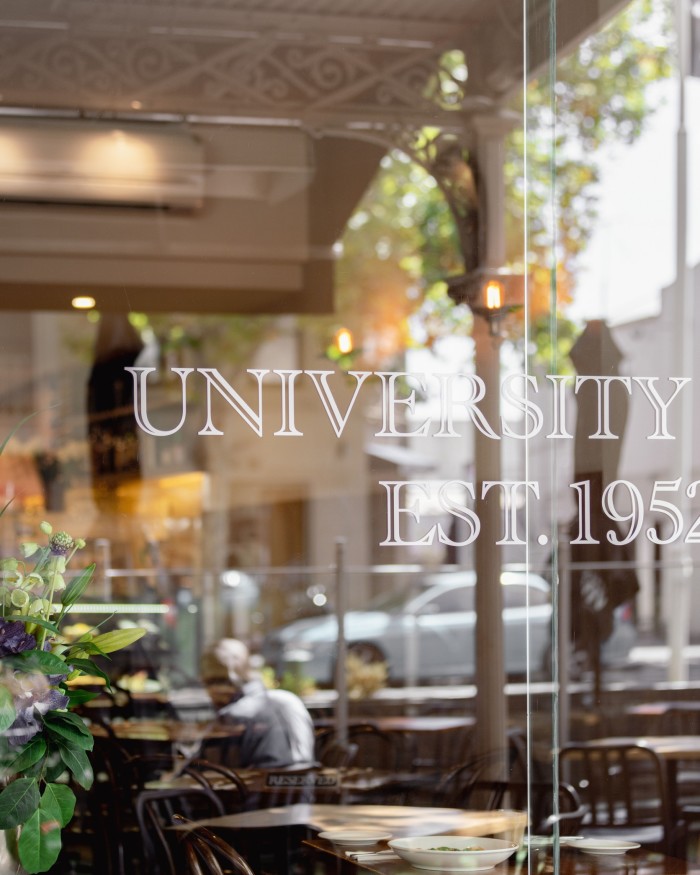
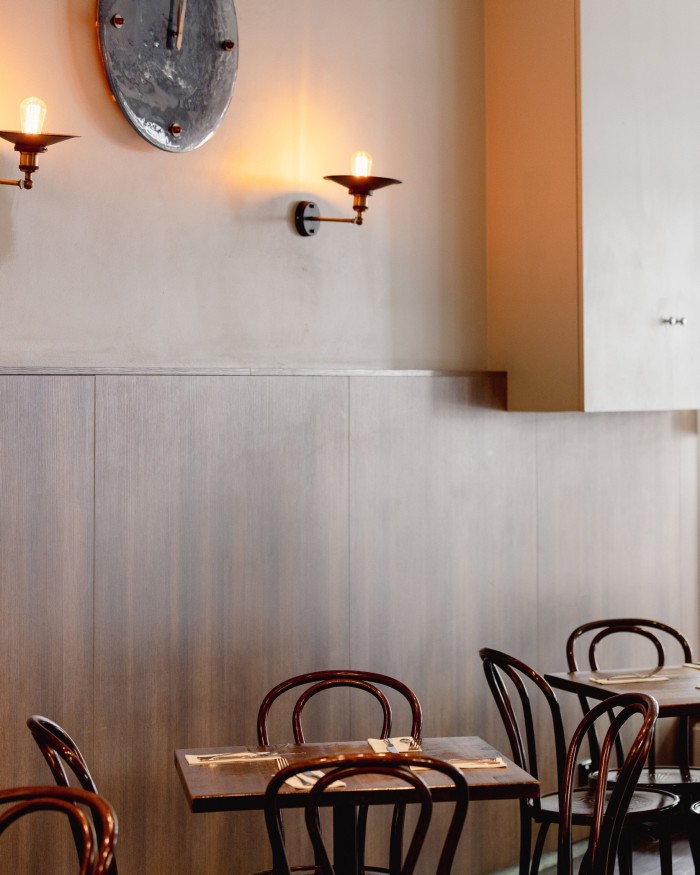
For those wanting to buy their own coffee machine, head up Lygon Street to the showroom of Coffee Machine Technologies, which displays a wide array of Italian espresso machines ranging from large commercial models to fancy home set-ups and stove-top Bialettis in the colours of the Italian flag.
A coffee bar on site gives customers a chance to road-test the best of the makers, and you are free to buy a caffè con schiuma — espresso topped with coffee-flavoured foam — and sit for a while admiring the mechanical beauty of the chrome and steel machines.
4. Seven Seeds
114 Berkeley Street, Melbourne, VIC 3053
Good for: Tapping into the sustainable coffee trend, sampling a “magic”
Not good for: Those who dislike students and admire decor
Opening Hours: 7am-5pm Monday to Friday; 8am-5pm Saturday and Sunday
Price of a flat white: A$5
Seven Seeds has to do a lot to justify its bold claims. The roastery, which was founded in 2007, says it is a pioneer in the movement to roast, wholesale, brew and retail coffee beans. “Game-changing then, game-changing now”, it states.
More to the point, Seven Seeds is very earnest. Customers are never more than a couple of feet from a copy of its impact report, which is liberally festooned around the building.
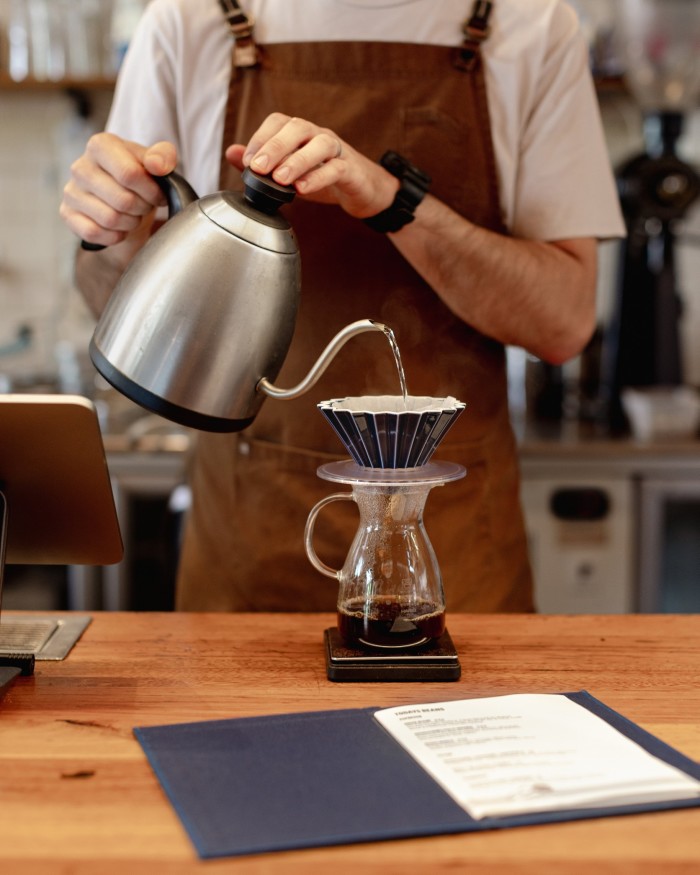
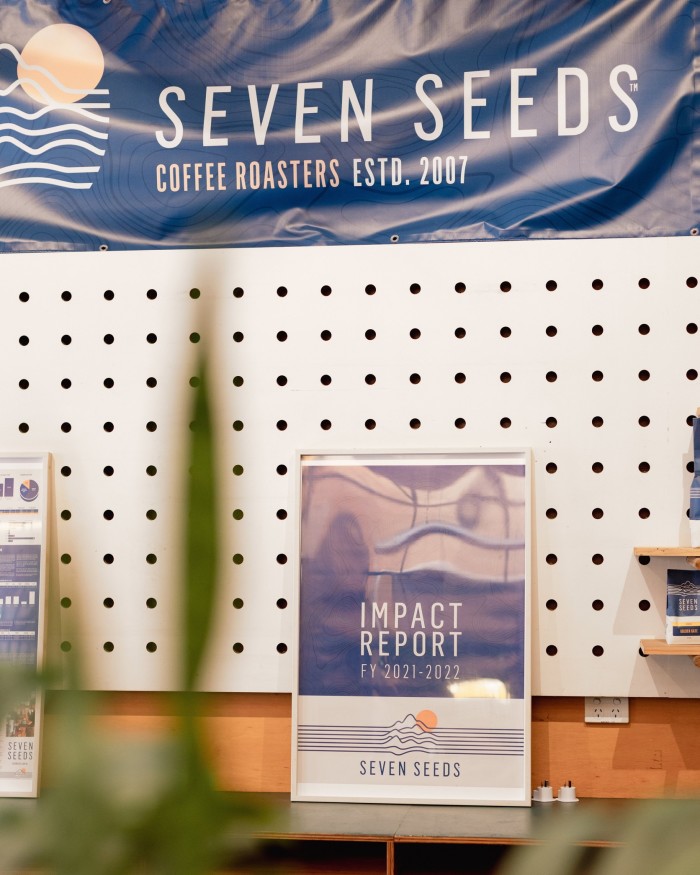
The document apologises to its customers after the roaster said it was forced to buy some beans on the spot market due to a giant African snail infestation that ruined one of its shipments last year. Precise detail over shipments of the coffee being sold and served at Seven Seeds and its payments to farmers around the world are listed. The outlook statement sees the proprietors concerned over trends in the industry towards “flashy processing methods” that damage the “terroir and authentic character” of coffee. It is impressive stuff for a business desperate to put its money where its sustainable mouth is.
Seven Seeds also delivers where it matters — in the cup. It is one of the best places in Melbourne to get a “magic”, the more potent cousin to the flat white. It is made with a double ristretto — which cuts off the watery element of an espresso — and knocks the foam off the velvety flat-white milk. The coffee is the epitome of a certain Melburnian smugness in that it is not always listed on the boards of cafés, providing a frisson of insider snobbery when ordering off-menu.
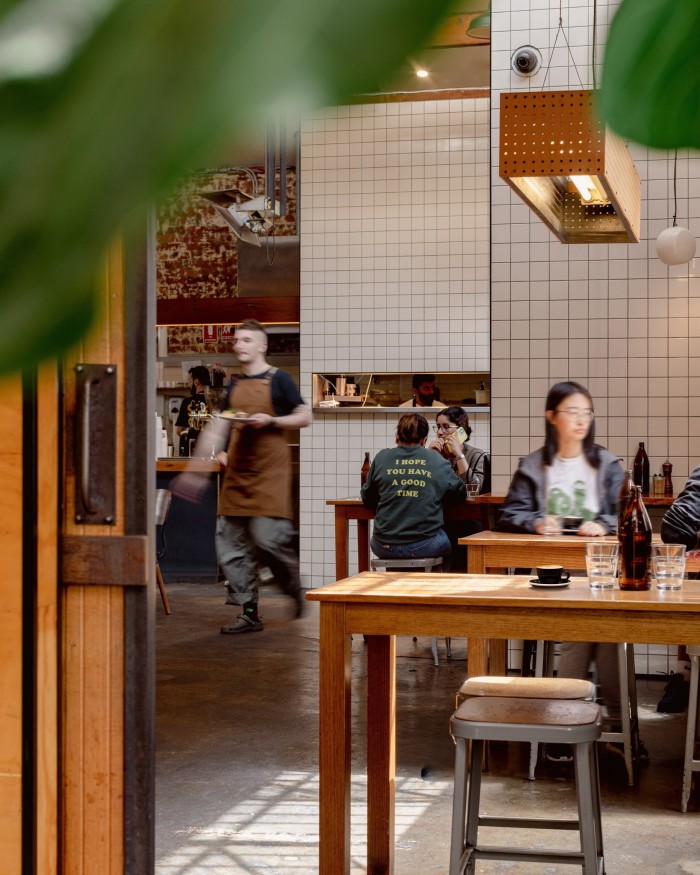
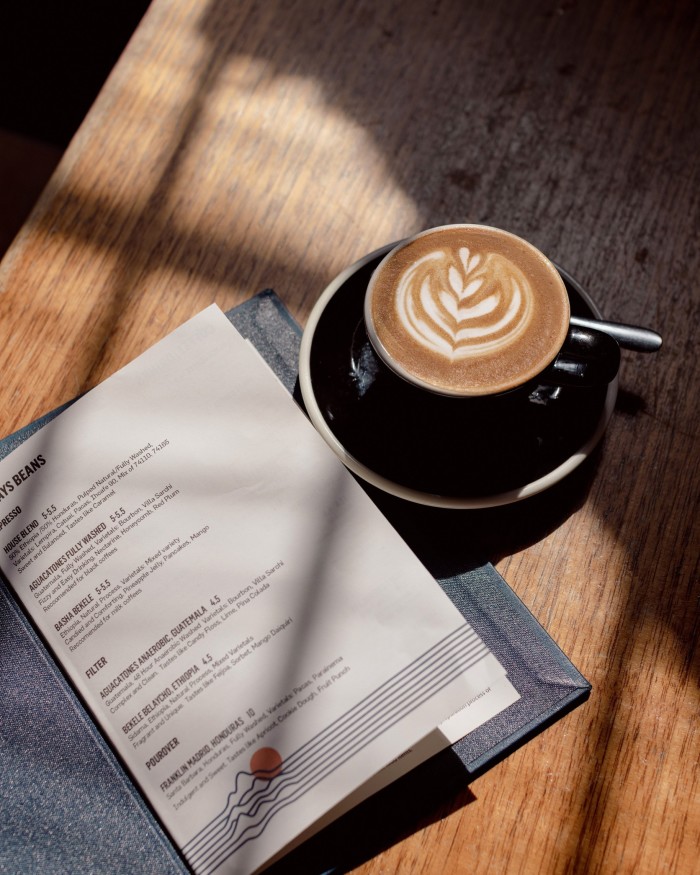
A “magic” — which is listed on the Seven Seeds boards — goes down very well with a lamington at the café, which is next to the University of Melbourne in Parkville. The ambience is more unfinished home renovation than warehouse, and the clientele veers towards the academic, but Seven Seeds has carved out a strong identity in a crowded caffeine market.
5. Puzzle Coffee
133 Swanston Street, Melbourne, vic 3000 (and other locations)
Good for: Convenient location, interesting flavoured coffees
Not good for: Sitting in
Opening hours: 8am-6pm Monday to Friday; 8am-7pm Saturday and Sunday
Price of a flat white: A$4.80
Much has been made of the relative failure of Starbucks after it closed 70 per cent of its stores in Australia 15 years ago. Coffee snobs across the land hailed the move as a sign that Australians had turned their noses up at the Seattle company and its Frappuccino culture.
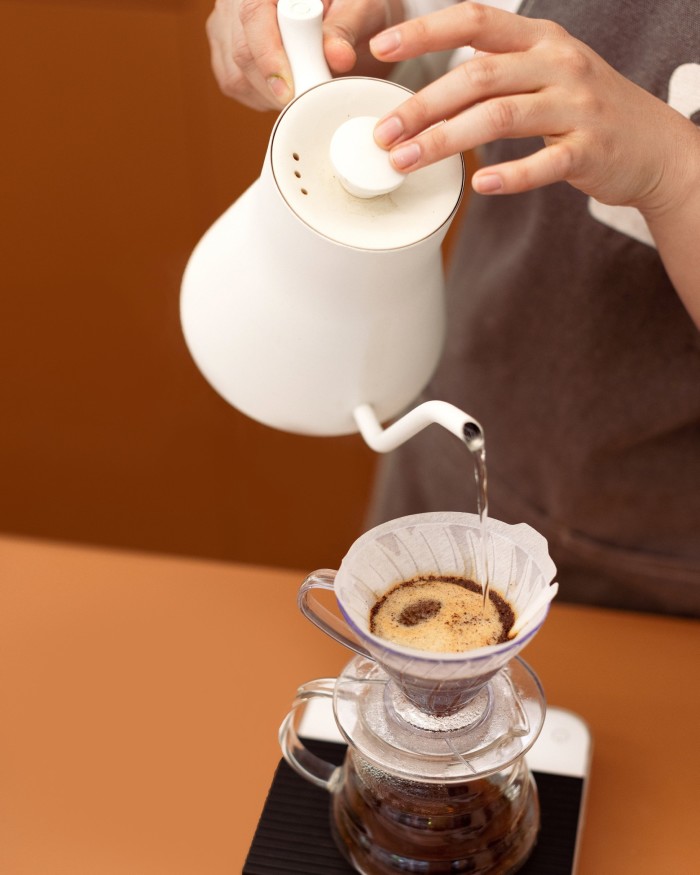
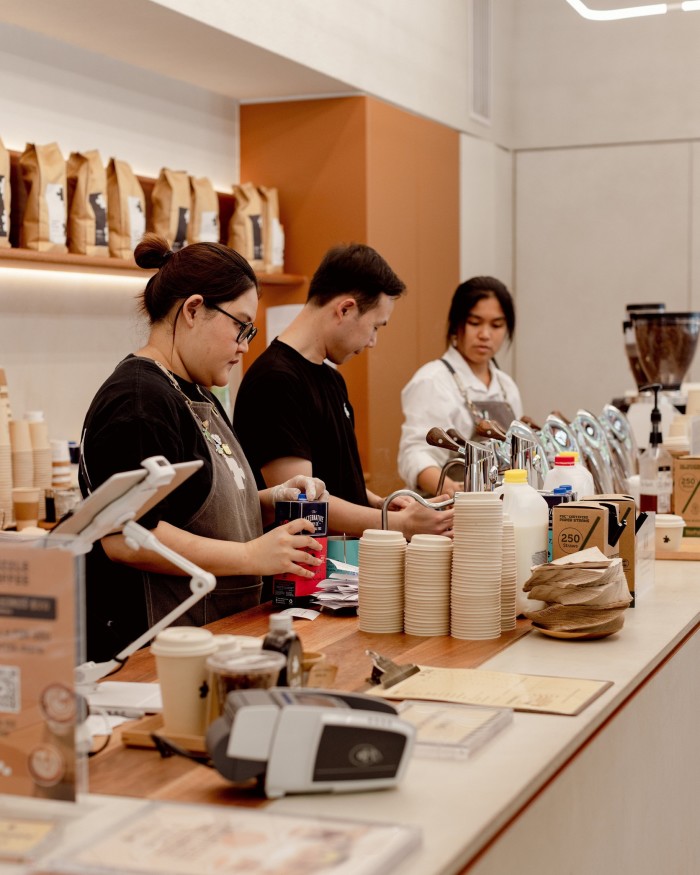
Yet it left a void for those who don’t have the inclination, or time, to bother with the artisanal brews when chasing a caffeine fix. A middle ground has been forged by cafés with mild expansionist ambitions, including well-regarded small chains such as Industry Beans, Axil Coffee Roasters and Puzzle Coffee.
Puzzle — which has four outlets in Melbourne and one in Singapore — appears high-end when glancing at its website, which boasts of its speciality cold brews, edible oat-and-grain cups, sustainability goals and tree-planting schemes.
Yet a visit to its Swanston Street branch across from Melbourne’s Town Hall feels more like joining a queue to apply for a passport, with lines out the door and a down-at-heel feel.
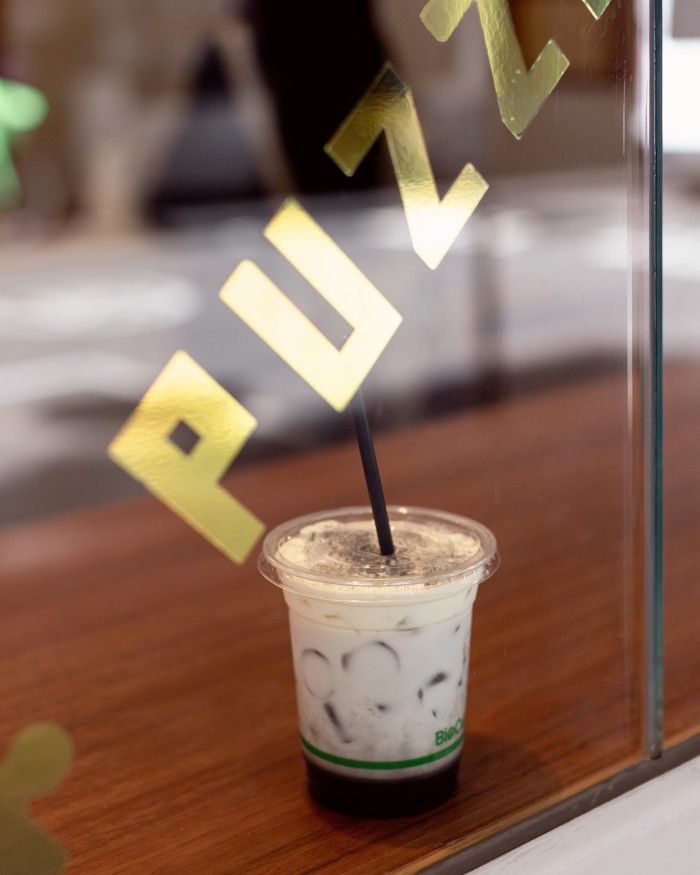
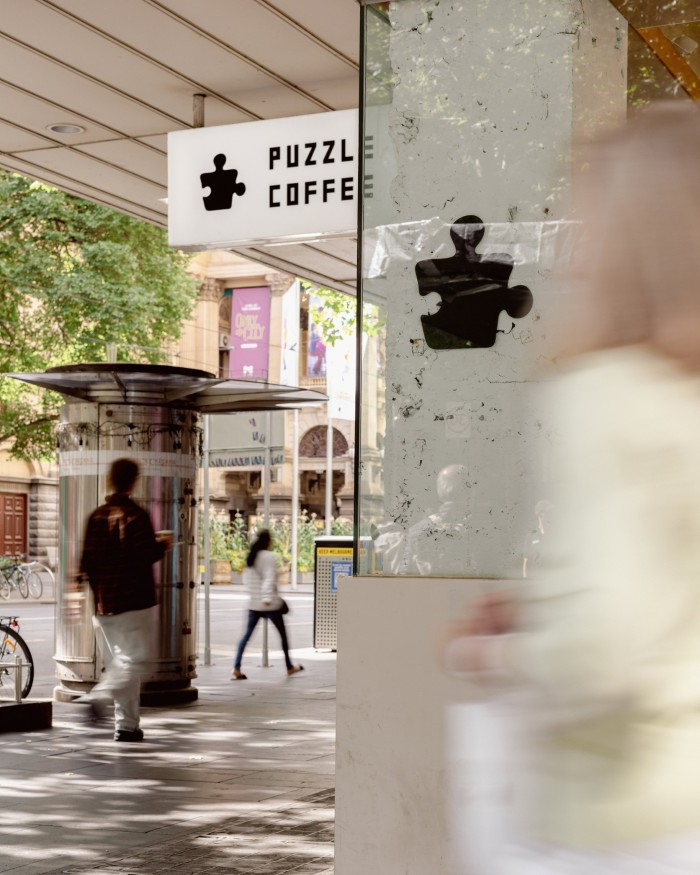
But the coffee is worth the slight wait. Puzzle has succeeded with the dreaded flavoured coffee: matcha is on the menu, as is the sweeter Biscoff biscuit flavour. The star is a black sesame latte that is earthy and pleasantly different even when the sesame detritus seeps down the back of your throat as you get to the bottom of the biodegradable cup.
Despite its name, the latte doesn’t contain actual coffee, so it needs to be filed as a guilty pleasure for a coffee snob. Best to back it up with a pour-over — the once prosaic practice of straining ground coffee through a filter that has been revived in Melbourne as a hip way to capture more purity of flavour — but wait until the sesame taste has faded.
Share your favourite Melbourne places for coffee in the comments
Follow FT Globetrotter on Instagram at @FTGlobetrotter
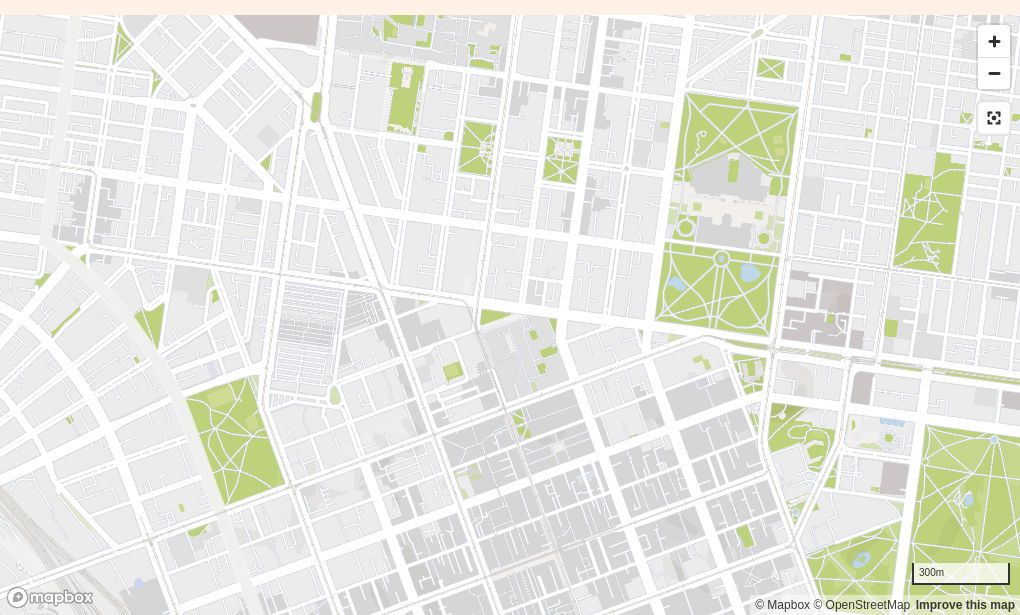
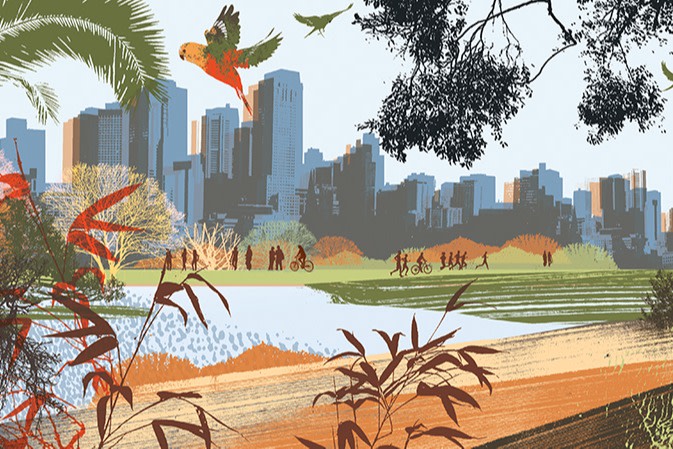
Comments